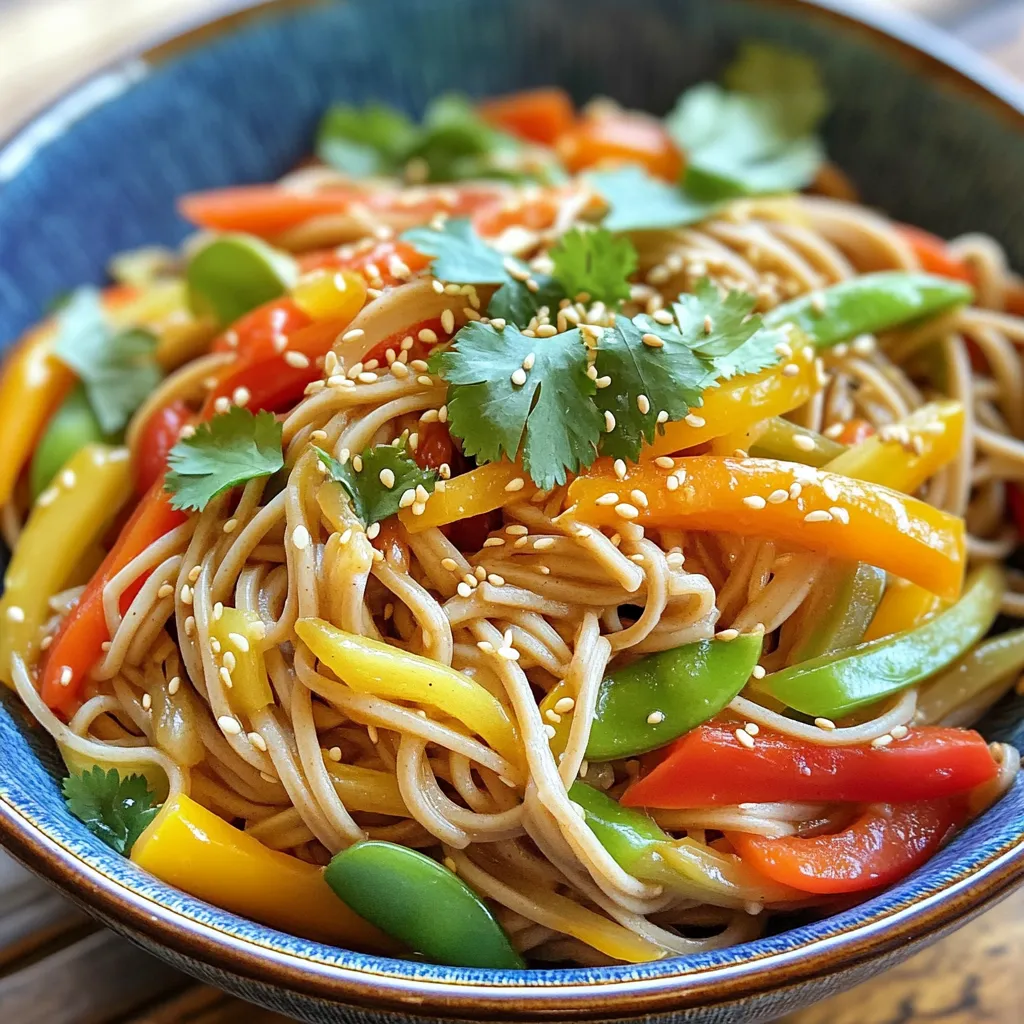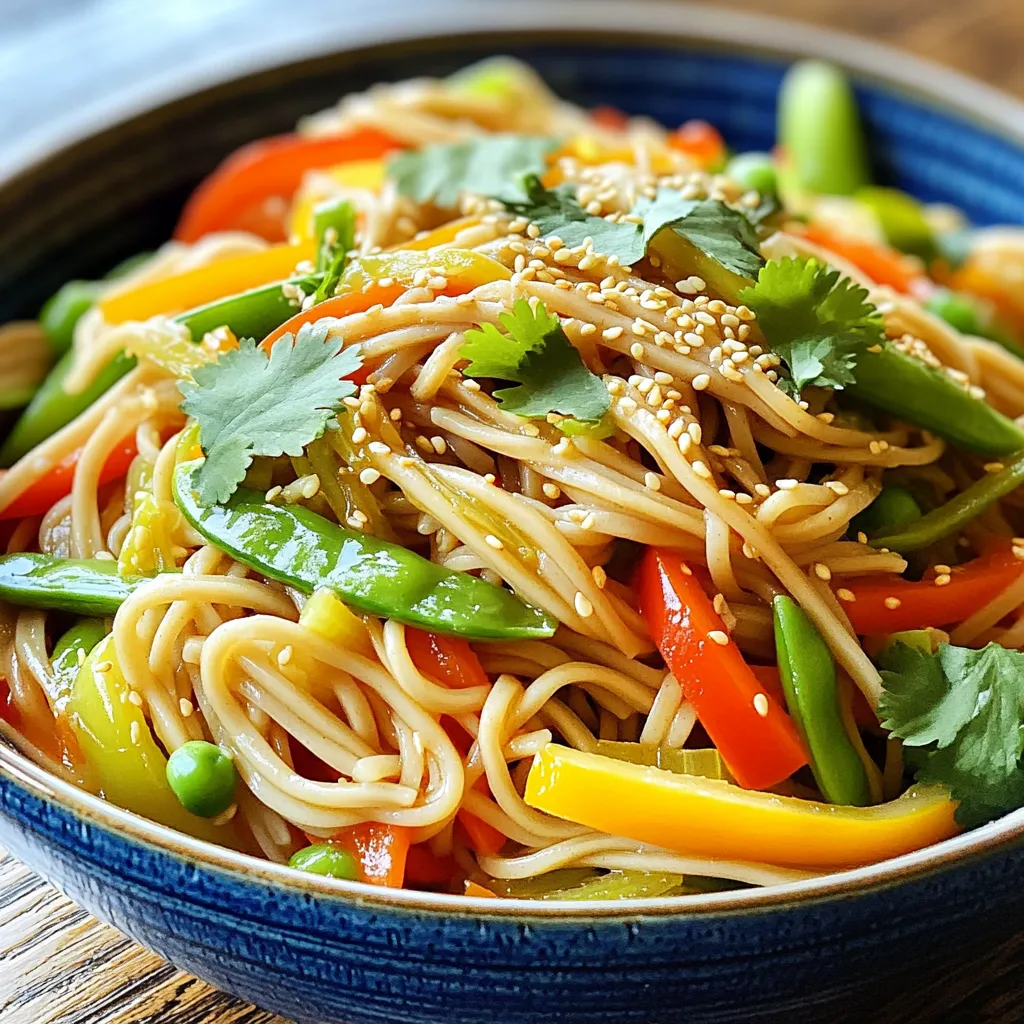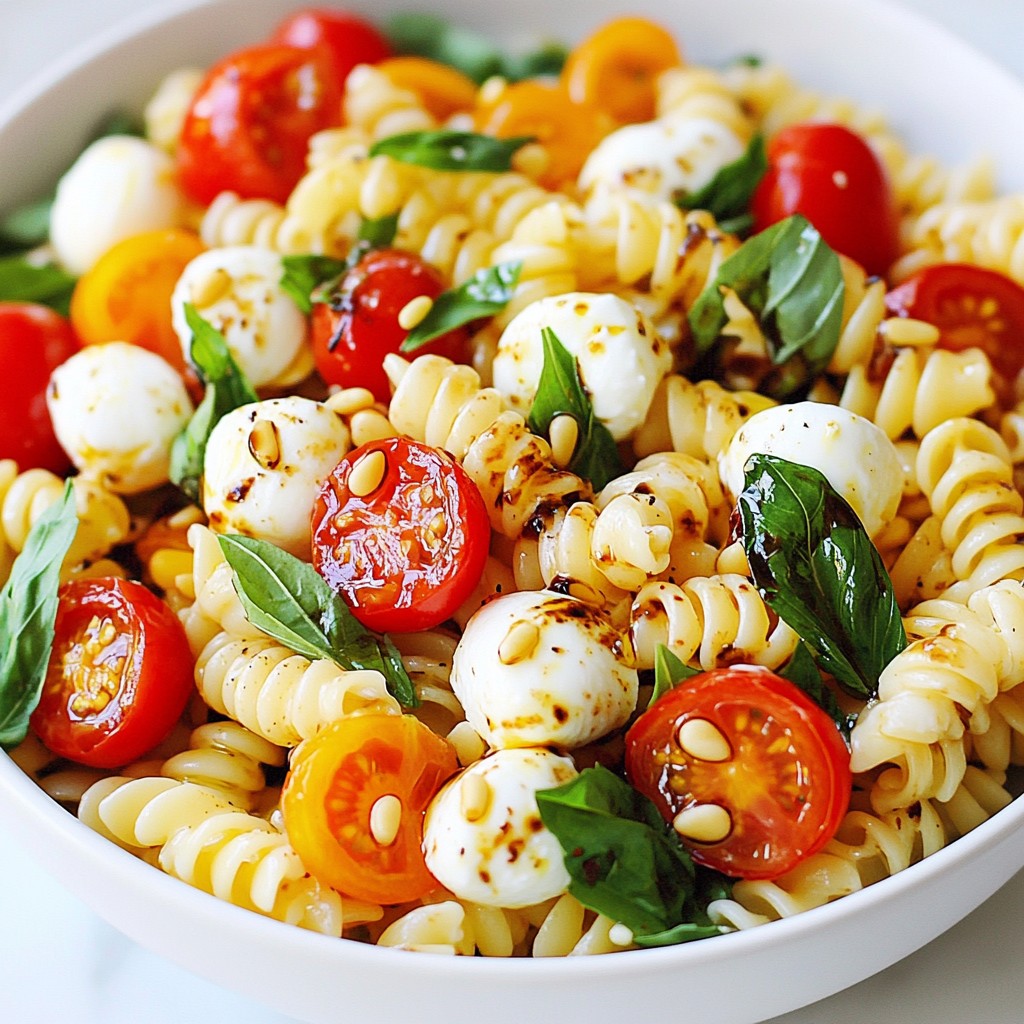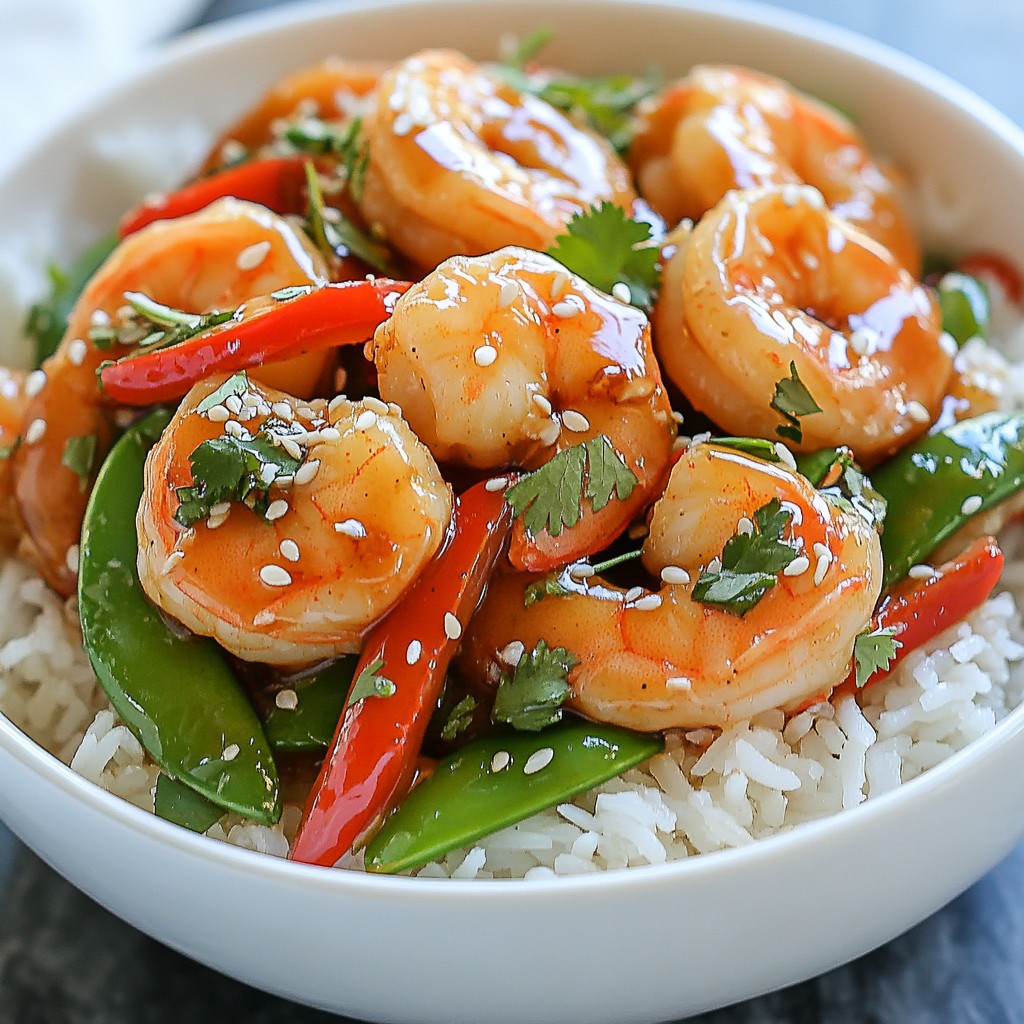Are you in need of a quick and tasty meal? Look no further than Minute Sesame Ginger Soba Noodles! This guide will take you through easy steps to whip up a delicious dish packed with flavor. With simple ingredients and quick prep, you can impress even the pickiest eaters. Let’s dive in and explore how to make this delightful meal in no time!
Ingredients
Soba Noodles
– 200g soba noodles
Soba noodles are made from buckwheat. They are thin and have a nutty taste. You can find them in most stores.
Sauce Components
– 2 tablespoons sesame oil
– 1 tablespoon fresh ginger, grated
– 2 tablespoons soy sauce (or tamari for gluten-free)
– 1 tablespoon rice vinegar
– 1 tablespoon honey or maple syrup
– 1 garlic clove, minced
This sauce is where the magic happens. The sesame oil adds richness. Fresh ginger gives a warm spice. Soy sauce or tamari adds saltiness. Rice vinegar brings a nice tang. Honey or maple syrup sweetens it up. Garlic adds depth to the flavor.
Garnishes and Vegetables
– 1/4 cup scallions, finely chopped
– 1/4 cup sesame seeds, toasted
– 1 cup mixed vegetables (carrots, bell peppers, snap peas), thinly sliced
– Fresh cilantro for garnish
Garnishes make the dish pop! Scallions add a mild onion flavor. Toasted sesame seeds give a crunchy texture. Mixed vegetables add color and nutrients. Fresh cilantro tops it off with a burst of freshness.
Step-by-Step Instructions
Cooking the Soba Noodles
First, grab a large pot and fill it with water. Bring the water to a boil. Once boiling, add 200g of soba noodles. Cook them for about 4-5 minutes. Stir the noodles often to stop them from sticking. When they are soft, drain them in a colander. Rinse the noodles under cold water to stop the cooking. This will help keep them firm and fresh.
Preparing the Sauce
While the noodles cook, you can make the sauce. In a small bowl, combine the following ingredients:
– 2 tablespoons sesame oil
– 1 tablespoon fresh ginger, grated
– 2 tablespoons soy sauce (or tamari for gluten-free)
– 1 tablespoon rice vinegar
– 1 tablespoon honey or maple syrup
– 1 garlic clove, minced
Whisk these together until they mix well. The sauce should smell nice and fragrant.
Combining Ingredients
Now, it’s time to put it all together. In a large mixing bowl, add the drained soba noodles. Pour the sauce over the noodles and toss gently. Make sure the noodles are fully coated in the sauce. Next, add in 1 cup of thinly sliced mixed vegetables and 1/4 cup of finely chopped scallions. Fold the veggies into the noodles.
To finish, serve the noodles in bowls. Top them with 1/4 cup of toasted sesame seeds and some fresh cilantro for a pop of color. Enjoy your quick and tasty meal!
Tips & Tricks
Perfecting Soba Noodles
To cook soba noodles perfectly, follow these steps:
– Bring a large pot of water to boil.
– Add the soba noodles and cook for 4-5 minutes.
– Stir occasionally to keep them from sticking.
– Drain the noodles in a colander.
– Rinse the noodles under cold water. This stops the cooking.
Doing this keeps your noodles firm and chewy.
Enhancing Flavor with Add-Ins
To make your dish more exciting, add some tasty extras:
– Thinly sliced carrots, bell peppers, and snap peas add crunch.
– Try adding some cooked chicken or tofu for protein.
– For a spicy kick, add a dash of chili oil or red pepper flakes.
– Top with your favorite nuts or seeds for a fun texture.
These add-ins make your meal more colorful and tasty.
Serving Suggestions
Serve your sesame ginger soba noodles like this:
– Use individual bowls for a nice touch.
– Add toasted sesame seeds and fresh cilantro on top.
– Pair with a light salad or some spring rolls.
– Enjoy with a cold drink, like iced tea or lemonade.
These tips help you create a meal that looks good and tastes great.

Variations
Gluten-Free Options
You can easily make this dish gluten-free. Use gluten-free soba noodles made from buckwheat. Tamari works well as a soy sauce substitute. Check labels to ensure no wheat is in the ingredients. This way, everyone can enjoy the flavors!
Protein Additions
Want to boost the protein? Add cooked chicken, shrimp, or tofu. Chicken breast can be grilled and sliced. Shrimp cooks quickly, just like the noodles. For tofu, try pan-frying for a crispy texture. Each option adds flavor and makes the meal heartier.
Seasonal Vegetable Swaps
Change the veggies based on the season. In spring, add asparagus or snap peas. Summer calls for fresh zucchini or bell peppers. In fall, pumpkin or roasted sweet potatoes fit well. Winter can bring in kale or broccoli. This keeps the dish fresh and exciting!
Storage Info
Refrigerating Leftovers
You can store leftover soba noodles in the fridge. Place them in an airtight container. They stay fresh for up to three days. Make sure to keep the sauce separate. This keeps the noodles from getting too soggy. When you want to eat them, just take them out and enjoy!
Reheating Tips
Reheat the noodles gently to keep them tasty. You can use a microwave or a pan. If using a microwave, add a splash of water. This helps them steam and stay moist. If using a pan, heat on low and stir often. This makes sure they warm evenly without sticking.
Freezing for Future Meals
Freezing your soba noodles is a great option! First, let them cool completely. Then, place them in a freezer-safe bag. Make sure to squeeze out as much air as you can. They can last up to three months in the freezer. When ready to use, thaw them overnight in the fridge. This way, they stay tasty and fresh!
FAQs
Can I make this recipe vegan?
Yes, you can easily make this recipe vegan. To do this, replace honey with maple syrup. Use tamari instead of soy sauce for gluten-free options. All other ingredients are plant-based. This keeps the dish tasty and suitable for a vegan diet.
How long do cooked soba noodles last?
Cooked soba noodles can last 3 to 5 days in the fridge. Be sure to store them in an airtight container. They may lose some texture after a few days. To enjoy the best flavor, eat them within the first few days.
What can I serve with sesame ginger soba noodles?
You can serve many things with sesame ginger soba noodles. Try adding grilled tofu for protein. A fresh salad pairs well too. You can also enjoy them with a side of steamed edamame. These options add variety and nutrients to your meal.
This post covered how to make delicious sesame ginger soba noodles. We explored key ingredients like noodles, sauce, and toppings. You learned how to cook the noodles and make the sauce. We discussed tips to perfect your dish and shared fun variations. Storage methods help keep leftovers fresh.
In the end, you can customize this recipe to fit your taste. Enjoy your cooking and feel free to get creative!




